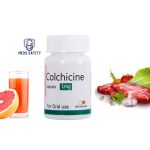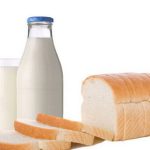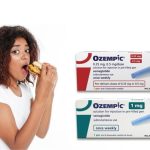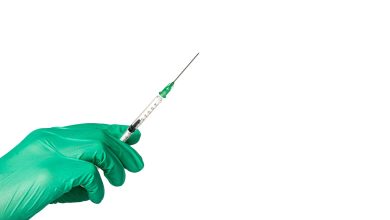List Of Foods to Avoid While Taking Adderall
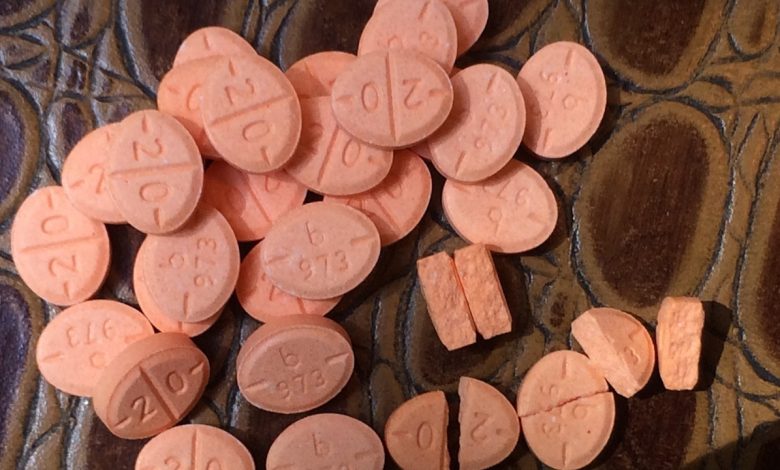
Adderall is a prescription medication that contains a combination of amphetamine salts. It is primarily used to treat attention deficit hyperactivity disorder (ADHD) and narcolepsy. Adderall works by increasing the levels of certain chemicals in the brain, specifically dopamine and norepinephrine, which play a role in focus, attention, and impulse control.
As a central nervous system stimulant, Adderall can help individuals with ADHD improve their ability to concentrate, stay focused, and control impulsive behaviors. It may also be prescribed off-label for conditions such as treatment-resistant depression or as a cognitive enhancer by some individuals.
It is important to note that Adderall is a controlled substance due to its potential for abuse and addiction. It is classified as a Schedule II drug in the United States, meaning it has a high potential for abuse, dependence, and counterfeiting. Because of this, Adderall should only be taken under the supervision of a qualified healthcare professional and in accordance with the prescribed dosage.
Food and stimulant drugs can interact in various ways, potentially affecting the effectiveness and safety of the medication. It is important to be aware of these interactions to ensure proper management of your medication and overall well-being.
This article aims to provide a comprehensive list of foods to avoid while taking Adderall, along with explanations for each item.
How Adderall works
Before we delve into the list of foods to avoid while taking Adderall, let’s take a good look at how the medication works. Adderall contains a combination of amphetamine salts it works by affecting certain chemicals in the brain, specifically dopamine and norepinephrine, which are neurotransmitters involved in various cognitive functions and behavior regulation.
1. Dopamine: Adderall increases the release of dopamine in the brain. Dopamine is a neurotransmitter associated with pleasure, motivation, and reward. By increasing dopamine levels, Adderall can help improve motivation, attention, and focus.
2. Norepinephrine: Adderall also affects the levels of norepinephrine, which is a neurotransmitter involved in alertness, arousal, and the fight-or-flight response. By increasing norepinephrine levels, Adderall can enhance wakefulness and concentration.
The precise mechanism of action of Adderall is not fully understood. However, it is believed that the medication works by promoting the release and blocking the reuptake of dopamine and norepinephrine. This leads to an increased availability of these neurotransmitters in certain areas of the brain involved in ADHD symptoms.
In individuals with ADHD, there is often a deficiency or imbalance in the levels of dopamine and norepinephrine, which can contribute to difficulties in attention, impulse control, and hyperactivity. Adderall helps to restore the balance of these neurotransmitters, allowing for improved focus, reduced impulsivity, and better behavioral control.
It is important to note that Adderall is a stimulant medication and can have both therapeutic effects and potential side effects. The medication should be taken under the supervision of a healthcare professional, who will monitor its effectiveness and adjust the dosage as needed. Misuse or unauthorized use of Adderall can lead to serious health risks and should be avoided.
It is always recommended to consult with a healthcare provider for personalized information about how Adderall works and to address any specific questions or concerns related to its use.
List Of Foods to Avoid while Taking Adderall
There are several food and drinks that should be avoided while taking Adderall, they include:
1. Citrus Fruits: Citrus fruits such as oranges, grapefruits, and their juices are known to increase the acidity in the stomach. This acidity can interfere with the absorption of Adderall into the bloodstream, potentially reducing its effectiveness. It is advisable to avoid consuming citrus fruits close to the time you take your medication.
2. Foods High in Vitamin C: Similar to citrus fruits, foods rich in vitamin C, such as strawberries, tomatoes, and kiwis, can increase the acidity in the stomach and affect the absorption of Adderall. It is best to consume these foods at least a couple of hours before or after taking your medication.
3. High-Fat Foods: Consuming high-fat foods, especially shortly before or after taking Adderall, may slow down the absorption of the medication. This delay can prolong the time it takes for Adderall to start working. It is recommended to avoid fatty foods like fast food, fried dishes, and high-fat dairy products.
4. Caffeine: Caffeine is a stimulant that can potentially interact with Adderall and amplify its effects, leading to increased heart rate, nervousness, and restlessness. Combining Adderall with caffeinated beverages like coffee, energy drinks, or excessive amounts of tea can cause overstimulation. It is advisable to moderate caffeine intake while taking Adderall.
5. Alcohol: Alcohol and Adderall should never be combined. Both substances can have stimulant effects on the central nervous system, and mixing them can increase the risk of heart problems, liver damage, and other adverse reactions. It is crucial to avoid alcohol entirely while taking Adderall.
6. Acidic Foods and Beverages: Acidic foods and beverages, including sodas, carbonated drinks, and acidic snacks like chips, can interfere with the absorption of Adderall in the gastrointestinal tract. These substances may alter the pH levels and affect the medication’s effectiveness. Opt for non-acidic alternatives and hydrate with water instead.
7. Foods with High Sugar Content: Consuming foods high in sugar can lead to fluctuations in blood sugar levels and potentially counteract the focus-enhancing effects of Adderall. It is recommended to limit the consumption of sugary foods, such as candies, cookies, and sugary drinks, to maintain stable blood sugar levels.
8. Antacids: Antacids are medications used to neutralize stomach acid and relieve heartburn or indigestion. However, they can interfere with the absorption of Adderall in the stomach. If you require an antacid, consult your healthcare provider to find an appropriate time gap between taking Adderall and using antacids.
Conclusion
When taking Adderall, it is crucial to be mindful of the foods and beverages you consume to ensure optimal effectiveness and safety. Avoiding citrus fruits, high-fat foods, caffeine, alcohol, acidic foods and beverages, high-sugar foods, and antacids can help minimize potential interactions with Adderall. Remember, always consult with your healthcare provider or pharmacist for personalized advice and guidance on how to best manage your medication and dietary choices while taking Adderall.

